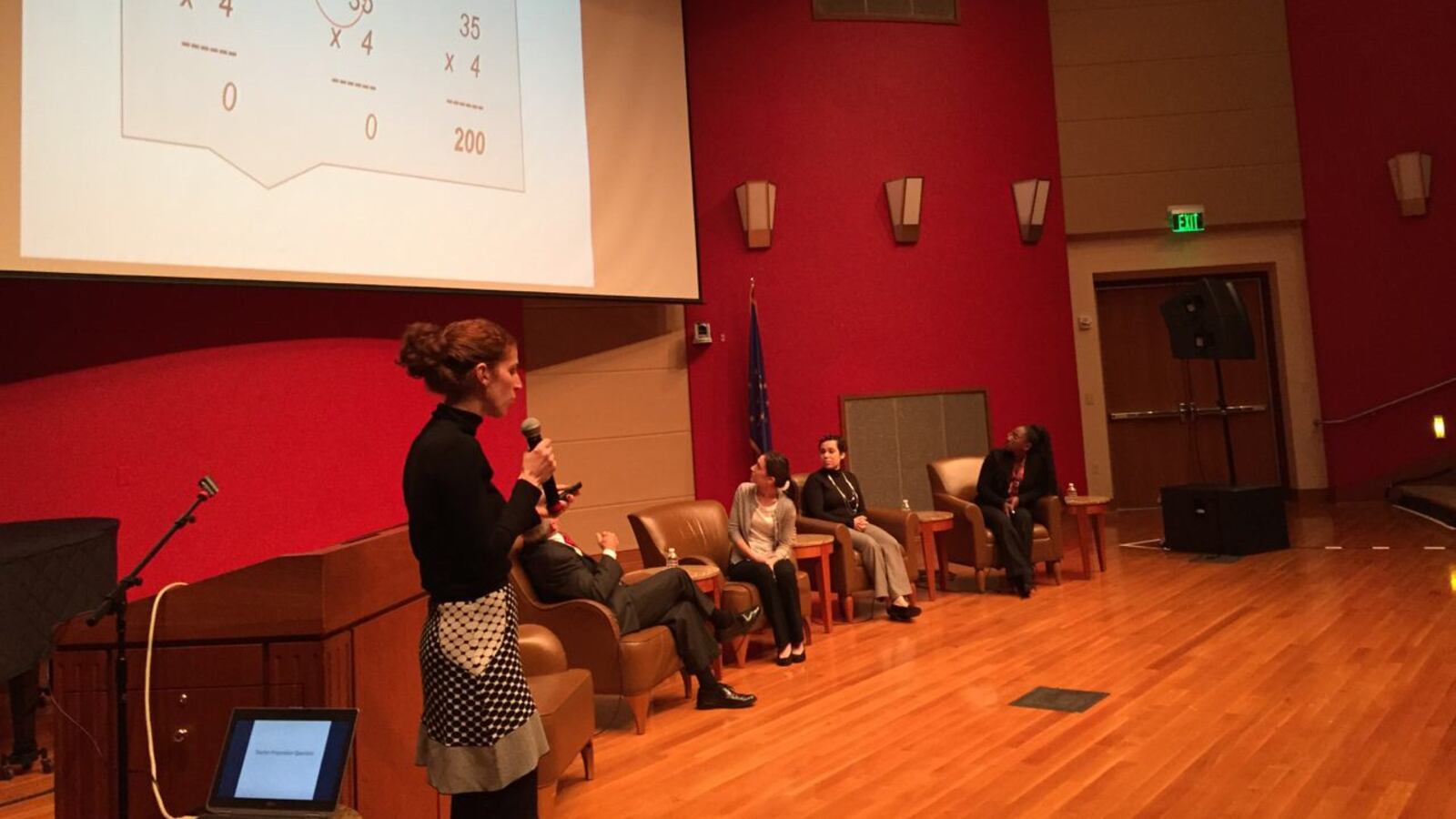Schools, teachers and students across Indiana face consequences when they fall short of state expectations on measures like the state ISTEP test.
Those test results lead to A to F grades for schools and factor into ratings that can get teachers fired at K-12 schools. Now Indiana is extending that concept to colleges of education.
Holding teacher training programs accountable for measures such as how many graduates get jobs within a year of graduating, how well teachers perform on evaluations during their first few years of work or how much student test scores grow isn’t fair because the science behind those measures can’t be trusted, said Gerardo Gonzalez, Indiana University’s education dean.
“Policy makers today want hard and fast answers,” Gonzalez said. “And it just doesn’t work like that in social sciences.”
Chalkbeat, Indiana University, WFYI, Teach Plus and the Indianapolis Public Library sponsored an event tonight examining how the teaching profession is changing. Gonzalez was joined on the panel by Chalkbeat CEO Elizabeth Green and author of “Building a Better Teacher,” which the New York Times recently named one of the top 100 books of 2014, along with two classroom teachers and an Indiana University student studying to become a teacher.
Green said her research showed that teachers not only need a strong understanding of the subject they teach, but also strategies to diagnose mistakes that lead students down the wrong paths.
“Teaching requires specialized knowledge and skill,” she said. “Teachers don’t just have to know the right answer to problems, they have to know the wrong answers.”
Gonzalez said Indiana University aims to recruit top high school graduates to teaching, but they often are lured away but more lucrative professions.
One aspiring teacher on the panel agreed that she was discouraged from going into teaching.
“Actually a lot of my teachers in my high school told me not to be a teacher because I was too smart for that,” said Adriana Rivera, a junior from the Gary area who is studying education at IU.
She said they told her: “A girl as smart as you should be a lawyer or a doctor.”
But classroom teachers Natalie Merz and Tayana Dowdell said their jobs are more intellectually demanding than many people think.
Merz, a second grade teacher in Indianapolis Public Schools, said frequent testing and new expectations to better prepare students for college and careers push teachers to keep moving on to harder material, which can leave behind those who need more work on fundamental skills in subjects like math or reading without extra effort from teachers.
“The time is just really difficult to put in that when you have a test in March that you have to take,” Merz said.
Dowdell, a teacher in Lawrence Township, said teachers must be prepared for all sorts of student needs.
“Going in, that person has to have that willingness to recognize that knowing every day might not look the same,” she said. “You have to accept change, you have to have that open mind to be able to address a variety of situations.”
Those challenges aren’t always understood by policy makers, Gonzalez said
“I think that in this country, we have taken too much for granted about teachers,” he said. “I think there are people who believe that if you just know your subject … that you can stand up in front of a classroom and teach it. We know that simply isn’t true.”
Accountability is always looming, he said, whether it’s holding teachers accountable for their students, or holding colleges responsible for their graduates.
“We want to blame teachers, hold them accountable, pay them less than just about every other profession and then we worry why they are leaving within five years?” Gonzalez said.

